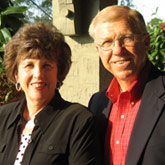Photo credit: NASA
Thirty-three years ago today, Jan. 28, 1986, I was working for the Associated Press Radio Network in Washington, D.C. Part of my job was to make closed-circuit announcements to our member stations regarding upcoming special coverage.
Attention stations: AP Network News’ special live coverage of the launch of the Space Shuttle Challenger will begin at exactly 11:30 a.m. Eastern Time from the Kennedy Space Center in Florida.
By this time, shuttle missions had become routine — so routine that some radio and TV networks weren’t bothering to provide live launch coverage anymore. After all, NASA had already successfully executed 24 shuttle missions, including nine Challenger missions.
However, the thing that made this particular mission unusual was the presence of a civilian crew member named Christa McAuliffe, a social studies teacher at Concord High School in New Hampshire. She was to be the "first teacher in space."
McAuliffe’s parents were in the VIP grandstand at Cape Canaveral, along with about 20 third-grade students, classmates of McAuliffe’s son, Scott. We had an AP reporter "embedded" with them, microphone in hand, ready to capture the young students’ excited comments as they watched the shuttle soar into the sky.
Stations, the launch itself is scheduled for 11:38 Eastern. Barring any unforeseen circumstance, we expect to conclude our live coverage and resume our normal network schedule at 11:44 a.m. Eastern Time.
Of course, we didn’t resume our normal schedule at 11:44. Seventy-three seconds after lift-off, Challenger exploded — a shocking "unforeseen circumstance" that took the lives of all seven crew members and stunned the nation.
At AP Radio, our planned 14-minute report turned into hours-long live coverage of a national tragedy. (You can hear some of that coverage below.)
When Plan A must give way
An official investigation later determined the Challenger disaster was preventable, which made the loss of life all the more tragic. But my point here is not about the disaster itself, but rather that AP Network News’ planned coverage had to be radically altered because something occurred that was completely outside our control.
That’s the way life is sometimes. Eighteen years ago, my parents decided to sell their house and downsize. They had a contract in hand and the closing date was set — Sept. 11, 2001. Early on that morning, terrorists attacked the World Trade Center and the Pentagon. Before the closing could take place, the buyer backed out. He worked for a defense-related firm and judged it wouldn’t be wise to buy a house in case his employer decided to relocate to another part of the country.
My parents had to cancel the moving truck, unpack many of their things, and stay where they were — for several more months, as it turned out.
For a recent example, consider the impact of the government shutdown on federal workers. Shutdowns have happened before, but who knew this would happen just before Christmas and continue for more than a month? Without an on-time paycheck, many federal workers felt the pinch almost immediately. Their Plan A suddenly was swept aside, at least for a while.
Expecting the unexpected
My former boss, the late Larry Burkett, used to talk about "planning for unplanned expenses." Seems like an oxymoron, huh? But Larry’s point was that things happen — roofs leak, refrigerators break down, teeth get cavities. None of us can know in advance exactly what will happen, but it’s wise to be financially prepared.
I would broaden Larry’s statement to say, "Expect the unexpected." No, don’t tie yourself in emotional knots by trying to anticipate everything that could possibly go wrong with the markets, with the economy, with your employer, with your health, etc. But do build a "financial cushion" — an emergency-savings fund that can act as a shock absorber for the financial blows that almost always occur when unexpected things happen.
Preparing and trusting
We can be grateful that most of the occurrences that upset our personal plans don’t rise to the level of a true tragedy or disaster. Still, as the writer of Ecclesiastes warns us, "you do not know what misfortune may occur on the earth" (Eccl. 11:2). In a fallen world, "unforeseen circumstances" happen. Although we can’t prepare for them all, we can prepare for many of them.
But keep in mind that while God encourages us to plan and prepare (see Proverbs 6:6-8 ), our trust isn’t to be in the money we may set aside, but in Him alone — the One "who made the earth by his power...and by his understanding stretched out the heavens" (Jeremiah 10:12).









